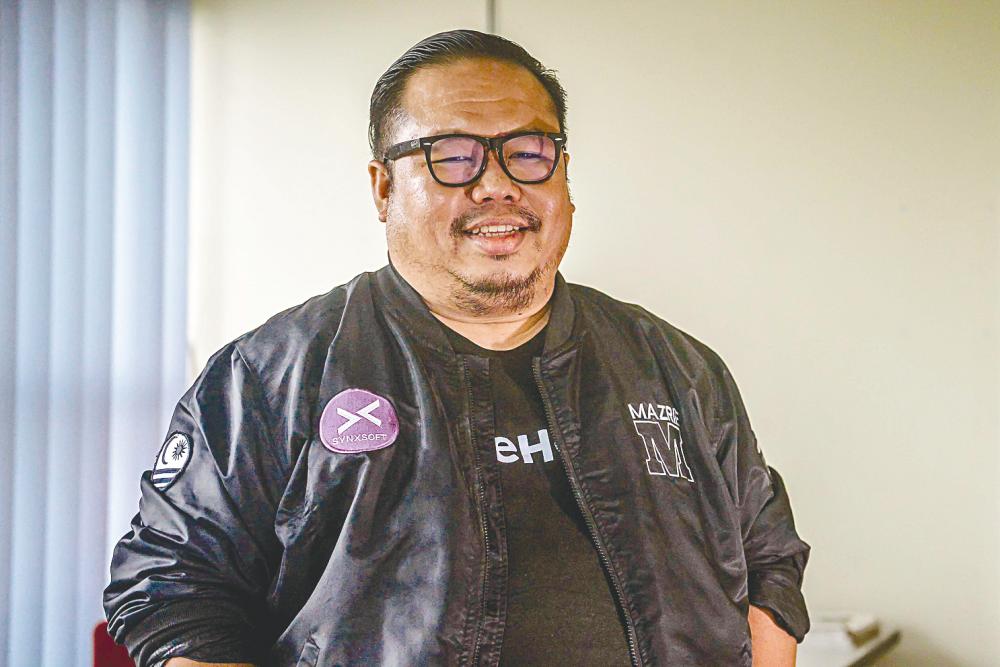PETALING JAYA: Software development company Synxsoft Sdn Bhd hopes to attract local micro, small and medium enterprises (MSME) by offering digital solutions to simplify the manual halal certificate application issued by the Department of Islamic Development Malaysia (Jakim).
According to founder and CEO Mazrie Mahat, Jakim is the only authority in Malaysia to issue halal certificates but the current process is ‘very manual’, thus Synxsoft cannot apply for the certificate but can assist companies with the documentation process, whereby they (companies) can then submit manually to Jakim.
He explained that since it involves a manual process, previously companies would outsource the process to consultants who may charge exorbitant fees. Hence, the Sabah-based company developed a “do-it-yourself” digitalised system which replaces the manual work and simplifies it, through its halal digital product, CoreHalal.
Jakim told SunBiz that there were 7,939 active halal certificates as of May 26.
Mazrie said that based on previous reports, about 200,000 companies are involved in halal-related businesses. Seeing a gap in the market, the company targets to multiply the number of local halal-certified companies, while striving to be the enabler for MSME to obtain the halal certificate and become halal-compliant.
Moving forward, global expansion is among the company’s main target. Mazrie said that last year, the company expanded its services to Japan and Australia, where they identified halal certification bodies in both countries to be its local partners, so as to implement its system to users in the respective countries and “from there we can acquire more subscription to our CoreHalal system”.
Mazrie disclosed that it is in the final discussions with identified partners in Vietnam and Taiwan respectively. He expects to expand to both markets by end of the third quarter this year.
Additionally, he said that there is a huge market for companies from non-Muslim countries to export their products to countries with large Muslim population. Hence, he is of the belief that those interested to export their goods to the latter can utilise CoreHalal because from a business perspective, he opined that halal is a value proposition and “there’s some element of halal that every industry can implement”.
“If you want to export your products to Malaysia, the Middle East or to any Muslim majority country, you need to (be halal-certified). We have already digitalised the process ... they can just subscribe to our system, go through the whole process and then submit (their application). That’s how we’re going to help importers and exporters,” he said.
Globally, he reckoned that there are around 450 halal certification bodies but some are not regulated by the government. He remarked that the Jakim certification is world renowned due to the high standards that the authority impose.
“We want to see how we can further enhance and improve the loose certification process that they have and try to see how we can introduce the (Jakim certification), which is (among) the most sought after halal certificate in the world,” said Mazrie.
He added that since CoreHalal is a digital process that adheres to Jakim’s standard, it targets to “so- called export the standard to the rest of the world” and other certification bodies.
Currently, CoreHalal is based on a business to business model and offers free as well as paid subscription services, with 150 paid users and almost 2,000 free users on the platform, encompassing all three countries where it operates.
It hopes to attract 600 to 1,000 paid subscribers this year from five countries by expanding into the overseas market, while also focusing on the local MSME market.
“Hopefully by year end, we expect (to have our digital platform available) in five countries including Malaysia,” he said.
Mazrie said that the Islamic economy comprises several sectors, the company is currently focused on halal food and beverages, logistics and warehousing sectors. In the future, he said, it may widen its horizon to include other halal sectors.
The company, which plans to be part of the bigger halal framework in Malaysia, has strategically partnered with Halal Development Corp and has been working closely with them to promote halal digitalisation as well as push the digital platform to Malaysian MSME.
It was one of the winners for MYHackathon 2020 and a grant recipient of the CIP Spark 2022. Currently, the company is open to talking with local banks and investors.
Mazrie says Synxsoft is currently focused on halal food and beverages, logistics and warehousing sectors. – Adib Rawa Yahya/theSun









